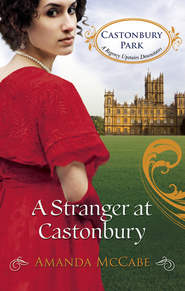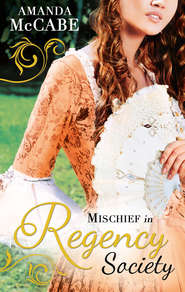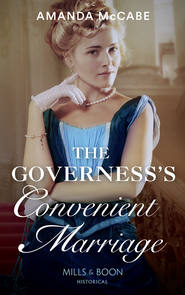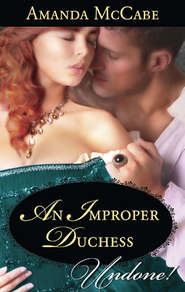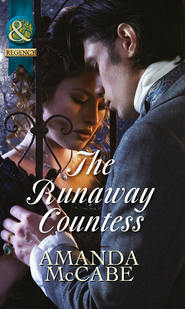По всем вопросам обращайтесь на: info@litportal.ru
(©) 2003-2024.
✖
Betrayed by His Kiss
Настройки чтения
Размер шрифта
Высота строк
Поля
Orlando watched a lady in black drift past, like a ghost. Or a dream, like the young dark-eyed woman had been. ‘You were not seen by them?’
The man snorted. ‘If we have no wish to be seen, my lord, then we are not seen.’
Orlando gave a wry smile. He glanced back over his shoulder at the cluster of men hovering in his doorway. It was true—they were most adept at blending into any crowd, with their dark clothes and bearded faces. Neither handsome nor plain, too grand or too ragged. Perfect for his own purposes. That was why he employed them, to help him keep an eye on the shifting loyalties of Florence.
And, it seemed, to help him rescue fair maidens.
He reached for a bag of coins and tossed it to them. ‘My thanks. You did a good deed for your souls today.’
The guardsman grinned, revealing cracked teeth. ‘’Twould take more than that to save our souls, my lord.’
Orlando had to laugh. His soul, too, was irreparably stained, beyond hope. Yet there had been something in that lady’s eyes as she looked up at him, an openness, a light that seemed to pull him up...
‘Is there anything else, my lord?’ the guard asked. ‘Shall we find out where the lady is dwelling? Or track down those thieves and finish them off?’
Orlando shook his head. ‘The thieves will come to a bad end soon enough. And the lady is safe now.’
Especially safe from him. He found he did want to know where she was, far more than he should. That light in her eyes had been so fascinating. But he knew that would not be wise. He was much too intrigued with her after only one meeting. It should go no further.
He turned back to the window. ‘I will send for you if you are needed again.’
They left in a scuffle of fading footsteps, the metallic click of their swords and daggers, and Orlando was alone again.
The sudden fight in that quiet square had made his blood hot, made it sing through his veins as it once did when he was a high-tempered youth. Tavern brawls held little attraction for him now. Such fights were a waste of his energy when far more serious matters pressed in around them. But when he came upon those filthy villains circling the lost, frightened lady, the old Orlando had surged back to life and a fury such as he had rarely known of late came back upon him.
And those eyes of hers, the delicacy of her hand as he helped her to her feet, aroused a lust just as sudden and fierce. He had wanted to kiss her, hard and deep, feel her body against his, as the furious rush of life carried them away. The tremble of her fingers, the wary gratitude on her face, held him back. He had done a fair deed; he couldn’t ruin it by scaring her all over again.
Now the anger and the desire had ebbed away, leaving him cold again. But the memory of her wouldn’t be erased from his mind. She wasn’t beautiful, not really, not in a city full of golden courtesans, but there was something much more than beauty in her face. Something he wanted to read.
So, nay—he should not find out where she lived. He should not see her again, for the sake of her as well as himself.
There was a knock at the door and his hand automatically went to the hilt of the dagger at his waist. The guards would not return without his summons. ‘Yes?’
The manservant who usually watched the door below came in with a low bow. He held out a sealed letter. ‘A message from the convent of St Clare. You asked that any word from them be brought to you right away.’
Orlando nodded and reached for the letter to break the seal and hastily scan the neatly penned words. He half-feared every time he heard from the convent that something ill had befallen little Maria. An illness, an accident—perhaps even a kidnapping if Matteo Strozzi discovered her existence. Little Maria was always in his thoughts, his plans.
But the message was only an account of Maria’s progress since he last visited. Her lessons in music, languages and her religious instruction went on well. She was a quick, bright child, as well as a beauty. Just as her mother had once been.
Orlando carefully refolded the letter. His sister’s dark despair, her terrible love for a villain who was nowhere near worthy of her shining spirit, had taken her away from her daughter. Maria Lorenza would never hear her child’s laughter, see her run through the sunshine. Everyone had betrayed her in the end.
Orlando would not.
And he could not afford to be turned from his avowed duty by maidens in distress—no matter how very intriguing they were.
Chapter Three (#ulink_1f446c1b-1b66-5652-a8a0-076420429f06)
The sun was a richer golden colour, almost amber, when Isabella and Caterina left the Strozzi palazzo. The afternoon was on the wane, the siesta of the city just breaking. Shops were opening again, people emerging from their homes to seek out food for supper, amusement for the evening. Young men in bright, fashionable garments and elaborately plumed caps still lounged on the street corners, yet Isabella noticed that they did not stare so insolently as Caterina drifted by. Rather, these noisy youths watched her with wide eyes and mouths agape, as if a goddess suddenly floated into their prosaic midst. The danger she had faced earlier seemed absurdly far away.
And, though she looked most carefully, she did not see the man who had saved her in that deserted courtyard. She began to wonder if he had been a mere dream after all. If this glittering surface was all there really was to the city after all.
Caterina wore blue again, a narrowly cut gown of deep-sapphire velvet slashed with white satin, the sleeves tied with fluttering gold-and-silver ribbons. She sported no jewels, no sparkling diamonds or soft gleam of pearls to compete with the glow of her skin and eyes.
She had loaned Isabella a gown of bronze-coloured silk, trimmed with red ribbons and embroidery on the high-waisted bodice. It was a beautiful garment, crafted in the very latest style, yet still Isabella felt like nothing so much as a country mouse, clad in city finery that fooled no one. She almost laughed aloud at this hazy unreality, the dreamlike state of it all.
Caterina linked her arm with Isabella’s, drawing her closer as they made their dignified progress along the street. ‘It is not far now, cousin. I go here every day. Sometimes I do not even return home until long after dark.’
Isabella was mystified. Caterina had told her nothing of their destination, merely shaking her head with a small smile on her lips when asked. Was it some very fine shop, a cathedral or gallery? Isabella was not at all sure she cared for this uncertainty, not on top of everything else that was so odd about this day. ‘Caterina, will you not tell me where we are going?’ she tried asking again.
‘I told you, it is a surprise. But I promise you, Isabella, that you will like it very much indeed.’
They finally stopped before a building, much like the Strozzi house in size and solid stone structure. The outer windows were shuttered and there were no signs or coat of arms to indicate what lay inside.
One of Caterina’s pages raised the brass door ring, bringing it down on the stout wooden door. After only a moment, the portal swung open.
Rather than another liveried servant, there stood a young man in a paint-stained smock, a smear of dark charcoal along one cheek. He blinked for a second in the fading sunlight, as if startled by the day, before a wide, delighted smile spread across his face.
‘Signorina Strozzi!’ he cried happily. ‘You are here. We have been wondering what was keeping you away this day.’
‘Only the happiest of events, Jacopo,’ Caterina answered. ‘My cousin, Signorina Spinola, has come to stay with me. She is another great lover of art.’
‘The master will be so very pleased.’ The young man swung the door open wider and Caterina led them through. Rather than an open, classical courtyard, as at the Strozzi palazzo, they stepped into utter chaos.
But chaos of the most wondrous sort. The sort Isabella so often lay awake at night fantasising about. Longing for. The chaos of an artist’s studio.
The high ceiling was enclosed in a thick glass skylight, pouring down sunshine on the activity below. Paintings were stacked along the walls, propped on easels, in all stages of readiness from just barely gessoed to completed scenes. People in stained smocks clustered around them, as bees in a summer hive, wielding bright brushes, arguing. The smell of turpentine and tempera paint was thick in her nostrils, heavy and acrid, as welcome as sweet springtime flowers.
Вы ознакомились с фрагментом книги.
Приобретайте полный текст книги у нашего партнера:
Приобретайте полный текст книги у нашего партнера:







